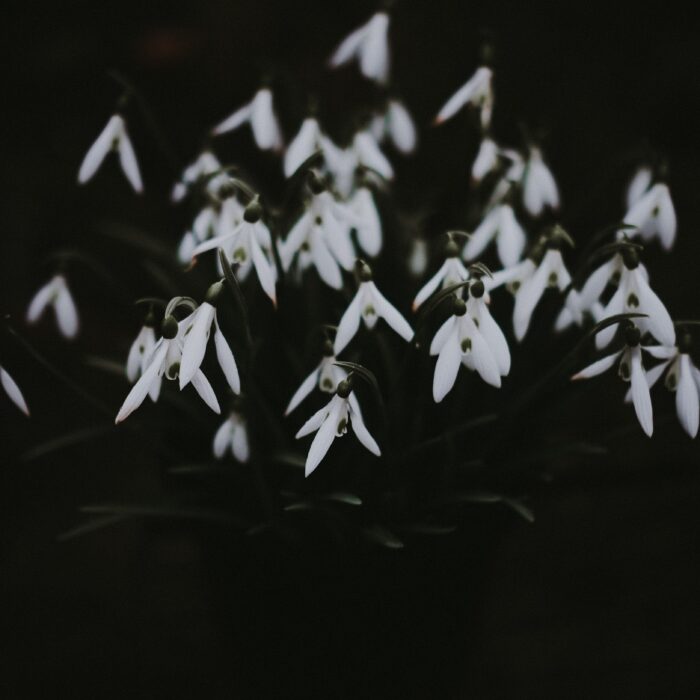You have no items in your cart. Want to get some nice things?
Go shopping
The novel I began in September of 2010 was supposed to help me rebound. After falling for someone for the first time in 2001, I’d gradually badgered him into blocking my calls. The novel was supposed to help me stop calling his voicemail. It was supposed to have been about some other gay black guy, not me, who’d fallen for his straight white friend. Projecting my hurt onto some other hapless snow queen was supposed to have helped me get over it. I worked on that novel until January of 2019, nine years later, much longer than it probably should have taken to finish my first. I try not to think the book took so long because I needed that much time to recover, but that could be the case. Having desired something that much shames me, is the bitter Anne Carson details in Eros, the Bittersweet.
In its nine years of making, the novel had sometimes justified itself, had sometimes convinced me it was worth my attention and long suffering. I’d known early in the process I was working to forge tools I felt I needed for surviving. I didn’t want to be a victim to my desire, to the legacies of white supremacy and internalized homophobia. I didn’t want to be so susceptible to the beauty of white boys, to their cruelty and blitheness and charm.
I always told people that I’d begun in 2010 (it was easier to log the years by starting at zero), but the themes of the project had already been with me for sometime by then, had germinated from reading I’d done as an undergrad in 2005, begun taking shape at least as far back as when I’d been safely ensconced enough within black community at Howard to acknowledge my desire for someone unattainable, peering directly at his whiteness, at his class status, trying to understand what that had to do with the straight white guys in the gay porn I was watching, the paramours of Bobby Garcia and David Hurles, those self-immolating gay neurotics profiled by John Waters in Role Models. And before that even, there’d been my pre-pubescent marathons of Disney’s The Mighty Ducks, too innocent to perceive much beyond a nascent guilt for the titillation I felt for the villainously privileged rival hockey team the Hawks, for the character Adam Banks, for the suburban Americana of Brett Kavanaugh or those boys from Covington Catholic High School. Beyond recovering from the rupture of my first unrequited love, in writing this novel, I’d set myself to excavating my entire life, all the things I’d felt as a working class gay black boy wanting access to whiteness and privilege and mobility and been unable to say.
At first I had thought it’s just their bodies, the disregard this society allows straight white men because they’re powerful enough to demand we avert our eyes from them, the casual neglect that makes catholic school boys appear as though they’re always bursting out of their clothes, their bodies developing so rapidly after the annual school shopping is done and so privileged they can be careless enough to do nothing about it. I liked their nonchalant pose, and I liked claiming my right to objectify them for a change.
But by year six or seven of working at the project, I’d begun to feel embarrassed about the duration of my efforts. I consoled myself by considering these years my apprenticeship, but privately I feared I’d erred in allowing the market to convince me to begin my writing career with a novel, that I’d undertaken a project that exceeded my ability in order to flatter my own ego. Maybe I’d mistakenly insisted on working with such myopic focus, at the exclusion of any other creative work, because I was unused to the necessary perishability of drafts. Maybe I’d treated my work too preciously. Maybe the novel was not the material’s natural form, as I’d begun defensively arguing in public. Maybe I was still trying to impress the boy I’d fallen for and could not have, to exhibit the depth of my ardour.
The rise of the short story in the years I worked at the novel only further pointed to egotism, that I’d too hastily disregarded the short form in order to satisfy my vanity. Literary success had meant submitting a novel first, and the love I was recovering from deserved success. Brevity had felt less serious, less rigorous. Now it appeared I’d shirked essential craft training and working ideas to their conclusion by only working to attract an agent’s notice or to establish myself as a writer. Or worse, I’d been over-indulging in reminiscence because I couldn’t let him go.
I’d been 25, and I was 34 all of a sudden. Whole years were now gone, as were some friends. I wasn’t young anymore, no longer possessed of whatever physical beauty might have been the particular provenance of my youth, could no longer hope to trade on that currency. It was as if Love, incarnate, the being Frank Bidart conjures in Desire, had been eating away at me.
“…anyone awaking to consciousness who finds himself incapable of obeying – or at least giving lip-service to – imposed conventions of behavior is forced into the labor of self-articulation through desire, experiencing painful torsions and painful results,” Helen Vender wrote of Bidart’s work in The New York Review of Books. “The young and intellectual Bidart … afraid to come out as gay until his parents died, and enthralled by art from his adolescence – had to invent a path of his own beyond the theological and social constraints of his family.” I’d had no idea how long this process would in fact take.
Instead, I’d reveled in this work of self-articulation, found a kind of happiness Bidart describes thusly: “you embrace one of the two species of / happiness, the sensation of / surrender, because at the same instant // you embrace the other, the sensation of power:–”. The pleasure of desiring these kids was excruciating, the surrender to all that privilege, the abnegation of offering my black body for a white guy’s consumption.
I wrote things like this:
“All the myths about the physical prowess of black men were just societal compensation, a way of granting black men some measure of dignity, not wanting to ever concede how vulnerable he actually was. It seemed distasteful to acknowledge his vulnerability, gratuitous somehow, even if that’s what he wanted, a way of signaling his frailty. No one ever granted him this, because the consensus was that he should never be seen this way, that the truth of it would somehow break him, defile his manhood in some irreparable way. They made him a warrior instead, a boogeyman, an athlete, everything but what he actually was, a simpering wound.
“For this reason bottoming, getting fucked, for him, was a political act. Taking it from a white guy was all the more potent. It was why he felt so righteously justified beseeching it from straight white guys, those who considered themselves friends or allies especially, why he pursued it so relentlessly, being prostrate before them. He did it to defy the compensation that had been offered him, all the glancing respect that was granted his hulking black male body. He wanted the truth instead, the lashes, the puncture, he wanted to see the knife plunged into his flesh, the enlivening gore of the slasher flick.
“That’s why he sometimes got too insistent, made a spectacle of being a ho, of wanting it so bad, to be banged, pounded out, bust open, to be held down and spread apart and riven by cock.”
The glee I took in writing passages like that–mannered and expository to escape the shame of the ideas, but with eruptions of foul-mouthed vernacular–felt almost as good as having had a white boy to desire. But parsing those sentences over and over, trying to find the lyricism in them, to make them both erudite and filthy, replaced pursuing new love interests in my real life, and I begin to fear that I’d grown too comfortable in this stasis, forever at work on the same ideas. Maybe that’s what I’d really wanted all along, to freeze myself in an ecstatic moment. Like Bidart’s Myrrha, I longed for this novel to, “Make me nothing / human: not alive, not dead.”
“Man experiences his abandonment in anguish,” Simone de Beauvoir wrote. “Fleeing his freedom and subjectivity, he would like to lose himself within the Whole: here is the origin of his cosmic and pantheistic reveries, of his desire for oblivion, sleep, ecstasy, and death. He never manages to abolish his separated self: at the least, he wishes to achieve the solidity of the in-itself, to be petrified in thing…”
Somewhere within those nine years, the gods, as Bidart wrote of Myrrha in Desire, had granted my request:
“…From her toes roots
sprout; the dirt rises to cover her
feet; her legs of which she never had been
ashamed grow thick and hard; bark like disease
covers, becomes her skin; with terror she
sees that she must
submit, lose her body to an alien
body not chosen, as the source of ecstasy is
not chosen—
suddenly she is eager to submit: as the change
rises and her blood becomes
sap, her long arms long branches, she cannot bear
the waiting: she bends her face
downward, plunging her face into the rising
tree, her tears new drops glistening everywhere on its surface:—”
By choosing to write what I knew, I’d indirectly begun making myself into something fixed, and I feared I might never be able to let go. I’d learned this process of mimesis as a child, sketching comic book characters with my big brother from 90s era Rob Liefield comic book cards. I never drew the characters as they were, combining them, or granting them some new super power, costume or hairstyle, in order to more fully possess them. By drawing them, I’d been making them mine. But the ecstatic feelings of longing I’d been working to cinch off, and also retain somehow, had begun turning me, like a tree, into an involuntarily celibate, an uncomfortable recognition I made while reading Amia Srinivasan’s essay for the London Review of Books “Does anyone have the right to sex?” Resigning myself to contemplating straight white bros rather than pushing myself to date gay men began to feel like a human failure, whether I would have to eventually face artistic failure or not.
The process of remaking myself or the object of my desire began to frighten me, learning the moral danger of objectification, a creeping horror Phillipa Snow describes from the film Vertigo. “Prior to his rendezvous with Judy, we see Scottie roam the streets of San Francisco looking for a girl who looks enough like a dead blonde mirage. The act of looking is the very thing in Vertigo, the source of all pleasure and pain, of sickness and joy… He looks, and looks, and looks. He fills himself with looking, like a drug, until the looking is disorienting. All the looking turns to wanting. Wanting, for a man who looks at women, often turns to taking.”
Fear drove me to complete the novel finally, if only to let it go. I took less joy in discovering some new insight about straight white masculinity, or finding some new way to say it. I zoomed out from the sentence level, only wanting to look at paragraphs and scenes. Searching for plot helped me escape those nine years.
Anne Carson wisely catalogues the effect of eros in Eros, the Bittersweet, in a chapter entitled “The Takeover.” “Eros comes out of nowhere, on wings, to invest the lover, to deprive his body of vital organs and material substance, to enfeeble his mind and distort its thinking, to replace normal conditions of health and sanity with disease and madness. The poets represent eros as an invasion, an illness, an insanity, a wild animal, a natural disaster.” I recognized this invasion, had prolonged it in fact, by working to record it once the thing itself had burnt out.
But this impression she juxtaposes with Sokrates, who lauds eros as an enlivening force. “As Sokrates tells it, your story begins the moment Eros enters you. That intersection is the biggest risk of your life. How you handle it is an index of the quality, wisdom, and decorum of the things inside you. As you handle it you come into contact with what is inside you, in a sudden and startling way. You perceive what you are, what you lack, what you could be… A mood of knowledge floats out over your life. You seem to know what is real and what is not. Something is lifting you toward an understanding so complete and clear it makes you jubilant. This mood is no delusion, in Sokrates’ belief. It is a glance into time, at realities you once knew, as staggeringly beautiful as the glance of your beloved.” This too I had come to know, despite having spent years broke and sexless, raving about my right to sex the way I wanted it.
By the time the novel was completed, I looked back over those nine years, and felt embittered by desire. I held to the urgency I’d felt at the outset of the project, wanting to honor the young man I’d been, who’d believed himself so illegible to the wider world, to the white guys he desired, even in a city as big as New York. But that consolation felt brittle. I had to repair it constantly. And I already felt so tired, from what desire had demanded of me.

Frederick McKindra
Frederick McKindra, fiction writer and essayist, lives in Little Rock, AR. He attended Howard University in Washington D.C., before moving to Brooklyn, NY. There he began work on his first novel, The Ticket, in 2010, while pursuing an MFA in Fiction at the New School. His essay “Becoming Integrated” from the Fall 2017 issue of the Oxford American Magazine was listed as a Notable Essay in Best American Essays 2018, edited by Hilton Als. He contributed a monthly column in 2018 to the Oxford American’s online series The By and By, which recorded his transition from New York City back to his native Little Rock. A 2017 Buzzfeed Emerging Writer Fellow, Frederick has received support from the Bread Loaf Writer's Conference as a 2017 Work Study Scholarship Recipient for Fiction and the Lambda Literary Foundation as a 2017 Writer in Residence. He is a frequent contributor to Buzzfeed New’s Reader section.



